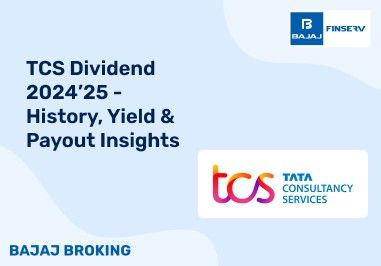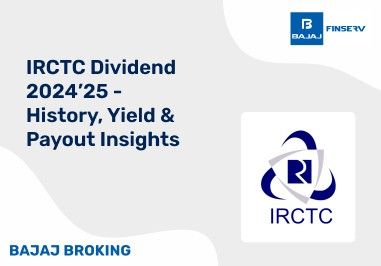A windfall tax is a special tax imposed by the government on companies or industries that experience unexpected and unusually high profits. These profits often arise due to external factors such as geopolitical changes, market disruptions, or sudden surges in demand for specific goods or services. Governments introduce windfall taxes to redistribute wealth, fund social programs, or address economic inequalities.
In India, the government imposed a windfall tax on oil and gas companies when crude oil prices surged due to global supply disruptions. This tax aims to balance economic benefits and prevent excessive profiteering from unexpected market conditions.
What is a Windfall Tax?
A windfall tax is a one-time levy on corporations that benefit from circumstances beyond their control. Unlike regular corporate taxes, which are consistent, windfall taxes specifically target extraordinary earnings, ensuring that industries benefiting from economic fluctuations contribute back to society.
These taxes are common in sectors like oil and gas, where unexpected price hikes can lead to massive profits. By imposing windfall taxes, governments can generate additional revenue to support social welfare programs or infrastructure development without increasing taxes on the general public.
Windfall Taxes and Oil/Gas industry
The oil and gas industry is one of the most impacted by windfall taxes. When crude oil prices rise sharply due to geopolitical tensions or supply shortages, oil companies often make significant profits. Governments impose windfall taxes to ensure that these gains do not solely benefit corporations but are reinvested in the economy.
For example, in 2022, India introduced a windfall tax on domestically produced crude oil to manage the economic effects of global oil price surges. This move aimed to stabilize fuel prices, control inflation, and generate additional government revenue.
Countries like the UK and Italy have also imposed similar taxes on energy companies that saw record profits amid rising global oil and gas prices. These measures help prevent excessive corporate earnings at the expense of consumers and the economy.
Despite their advantages, windfall taxes can discourage investment in the energy sector. Companies may hesitate to expand operations or invest in new projects, fearing unexpected taxation on future gains. Striking a balance between revenue generation and business incentives is crucial.
Benefits of the Windfall Tax
- Revenue generation: Windfall taxes provide governments with additional funds that can be used for public welfare, infrastructure, and economic recovery programs.
- Economic stabilization: By taxing excess profits, governments can control inflation and stabilize markets.
Drawbacks of the Windfall Tax
- Discourages Investment: Industries affected by windfall taxes may hesitate to expand or innovate, fearing sudden taxation.
- Market Disruptions: Companies might pass on the additional tax burden to consumers, leading to higher prices for goods and services.
The Windfall Tax debate
Supporters argue that windfall taxes promote economic fairness by ensuring corporations share extraordinary profits with society. Governments can reinvest the revenue into crucial sectors such as healthcare, education, and infrastructure, ultimately benefiting the entire nation.
Another advantage is that windfall taxes help in reducing income disparity. Since large corporations often make extraordinary profits while the general population faces economic hardships, a windfall tax ensures that wealth is distributed more equitably across society.
On the other hand, critics argue that windfall taxes create uncertainty for businesses. Companies require stable tax policies to plan long-term investments. Frequent changes in taxation may discourage businesses from operating in certain countries, leading to potential job losses and economic slowdown.
Additionally, some argue that imposing windfall taxes unfairly targets specific industries, especially during times of economic downturn. If applied inconsistently, these taxes can lead to unintended consequences, such as reduced production and investment.
Criticisms of Windfall Taxes
- Unfair Burden on Certain Industries
- Risk of Price Increases for Consumers
- Potential Capital Flight as Companies Seek Tax-Friendly Jurisdictions
- Lack of Long-Term Sustainability
- Possible Reduction in Domestic Production and Supply Chain Disruptions
Modern example of Windfall Tax
A notable modern example of windfall tax implementation occurred in India in 2022 when crude oil prices soared globally. The government introduced a tax on domestically produced crude oil and fuel exports to curb excess profits earned by energy companies. Over time, the tax rates were adjusted based on international crude prices and economic needs.
In the UK, a windfall tax was imposed on North Sea oil and gas producers in 2023. The British government cited excessive profits from the energy crisis as a key reason for introducing the tax. The revenue generated was used to provide financial assistance to households struggling with rising energy bills, demonstrating how windfall taxes can be used for social welfare purposes.
Similarly, European countries like Spain and Italy have implemented windfall taxes on energy companies that benefited significantly from the global increase in oil and gas prices. These governments used the collected taxes to support small businesses and lower-income households, highlighting the role of windfall taxation in economic redistribution.
Windfall Taxes on individuals
While windfall taxes typically target corporations, individuals receiving unexpected financial gains may also be subjected to special taxation. For instance, lottery winnings, large inheritances, and stock market gains may be taxed at higher rates in some countries.
In India, individuals earning significant capital gains from assets such as stocks, real estate, and bonds may face additional tax implications. However, these are structured differently from corporate windfall taxes, often falling under capital gains taxation.
Windfall vs. Regular Taxes
Aspect
| Windfall Tax
| Regular Tax
|
Applicability
| Only on unexpected, high profits
| Applied consistently on all earnings
|
Frequency
| One-time or temporary
| Recurring annually
|
Industries affected
| Specific sectors (e.g., oil & gas)
| All businesses and individuals
|
Purpose
| Redistribution of excess profits
| General revenue generation
|
Economic impact
| Can stabilize inflation
| Predictable and stable
|
Conclusion
Windfall taxes play a crucial role in ensuring economic balance by taxing extraordinary profits earned due to external factors. While they help generate government revenue and stabilize markets, they also present challenges such as investment deterrence and market disruptions. Striking a balance between economic growth and fair taxation is essential to maintaining long-term financial stability.
Disclaimer: Investments in the securities market are subject to market risk, read all related documents carefully before investing.
This content is for educational purposes only.
*For Detailed Disclaimers Click Here: https://www.bajajbroking.in/disclaimer













